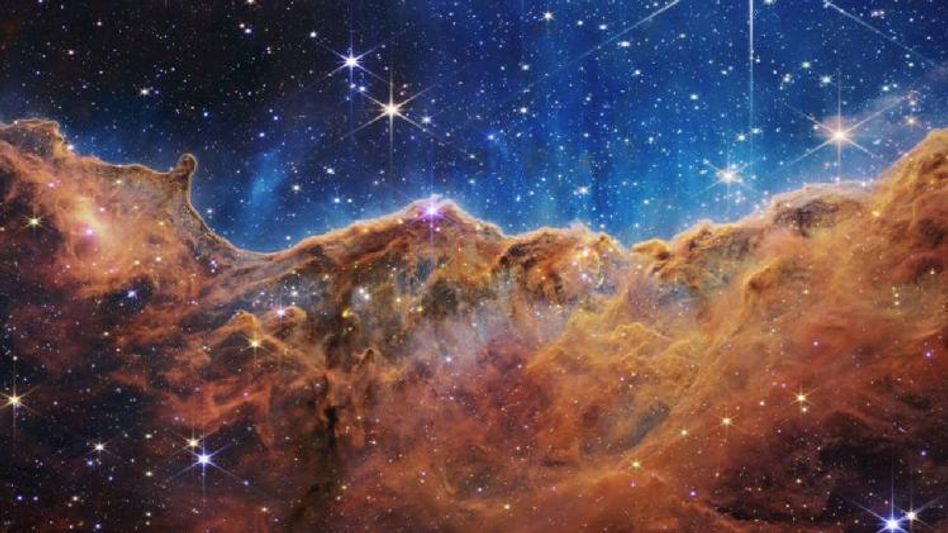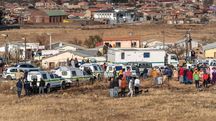NASA unveils James Web Space Telescope first images
The Southern Ring planetary Nebula has been captured in exquisite clarity in the most recent images taken by the telescope.
 NASA unveils James Web Space Telescope first images
NASA unveils James Web Space Telescope first images NASA unveils spectacular full set telescope first images of cosmic feature on Tuesday
The Southern Ring planetary Nebula has been captured in exquisite clarity in the most recent images taken by the telescope.
The stunning photographs capture a star's final moments as it puts on one last display of light, gas, and dust before bowing out of the cosmos.
Taking the twitter NASA Administrator Bill Nelson , shares images of the cosmic feature and that there is no words. Just WOW. Think of the discoveries to comes as we #UnfoldThe Universe.
There are no words. Just WOW.
— Bill Nelson (@SenBillNelson) July 12, 2022
Think of the discoveries to come as we #UnfoldTheUniverse pic.twitter.com/f1C9GMEk9Z
According to media report Bill Nelson stated that “Today, we present humanity with a groundbreaking new view of the cosmos from the James Webb Space Telescope – a view the world has never seen before,”
He further added, “These images, including the deepest infrared view of our universe that has ever been taken, show us how Webb will help to uncover the answers to questions we don’t even yet know to ask; questions that will help us better understand our universe and humanity’s place within it.
According to data the four images released on Tuesday, include:
• Carina Nebula – one of the bright stellar nurseries in the sky, about 7,600 light-years away.
• Stephan’s Quintet – Five galaxies in a cosmic dance, 290 million light-years away. First seen 225 years ago in the constellation Pegasus.
• Southern Ring Nebula – sometimes called “eight-burst.” About 2,500 light-years away, it shows an expanding cloud of gas surrounding a dying star. A light-year is 5.8 trillion miles.
• WASP-96b – A blueish giant planet. It’s about the size of Saturn and is 1,150 light-years away. A gas planet, it’s not a candidate for life elsewhere but a key target for astronomers.
What is James Webb Space Telescope?
The James Webb Space Telescope (JWST) is a space telescope that was built primarily for infrared astronomy.
Its greatly improved infrared resolution and sensitivity allows it to study objects too old, far away.
The NASA led the telescope's development in collaboration with the European Space Agency (ESA) and the Canadian Space Agency (CSA).
According to NASA, these fresh details from will improve better understanding of how stars develop and alter their surroundings.
Copyright©2025 Living Media India Limited. For reprint rights: Syndications Today









